Hey fellow Insider 👋
This episode is truly special to me because it dives deep into the concept that has been the foundation of our show since its inception.
This week, our discussion centred around a fascinating concept that has captured the imagination of many, the experiment known as “The Marshmellow Test”. As I explored the subject matter, I couldn't help but feel a sense of excitement and discovery that comes from unravelling the complex threads of human behaviour and societal influences.
Throughout the episode, I shared my thoughts on the intersection of willpower, success, and the limitations of personal responsibility. But before we dive into the details, I want to express my gratitude for your continued support and engagement. It's through these conversations that we can truly reshape the personal development industry and redefine what it means to live a fulfilled life.
One thing that struck me deeply was the realization that the “Marshmallow Test” once considered an indicator of long-term success, might not be the silver bullet we originally believed it to be. As I explored the research, it became clear that socioeconomic status played a more significant role in future outcomes, rather than the ability to delay gratification.
This revelation challenged my own beliefs about willpower and its influence on achieving our goals.
The groundbreaking study by Stanford psychologist Carol Dweck and her colleagues shed light on the power of mindset. Participants who held the belief that willpower was a finite resource were more likely to give up, while those who saw it as limitless showed resilience and perseverance.
It's fascinating how our beliefs shape our reality. If we believe that willpower is limited, we inadvertently create that limitation. Instead, let us embrace the idea that we have the capacity to be the change we want to see.
As we explored the theme of personal responsibility, I couldn't help but reflect on the dangers of placing sole blame on individuals for their circumstances. While personal responsibility has its place, we must not overlook the impact of societal structures. It's important to recognize that not everyone starts with the same advantages in life.
By acknowledging the interplay between personal responsibility and collective structures, we create a space for empathy, understanding, and change. Let us strive for horizontal relationships where everyone is seen as equal, and we can build real communities that support one another without judgment.
I want to extend my deepest thanks for joining me on this thought-provoking journey through self-help and its implications. Together, we are challenging the status quo of the personal development industry and seeking out ethical ways to create transformative change.
As always, I'm eager to hear your thoughts and insights on this topic, or any other topic that resonates with you. Remember, you can always reach out to me directly by replying to any of my emails.
Listen to the episode or keep reading below for a transcript of the show.
I’m so grateful for this medium, podcasting, and the fact that you’re listening to my episodes. I do not take that for granted. I think it’s a wonderful time we’re living in where ideas and value is enabled to spread so easily and deeply. And that you’re investing your time and attention in tuning in to what this podcast has to offer is just beautiful to me.
I’ve been doing this podcast since September 2022 on a weekly basis – except for a short hiatus when I was changing hosting platforms.
Currently, the way that things unfold for me, I end up producing and recording each weekly episode in a very real-time manner. Often, like today, Monday, I am researching, writing, recording and editing the episode that is being published tomorrow, on Tuesday. And sometimes the editing is done on Tuesday and the episode is published straight away piping hot fresh out of the oven … Which can explain why the weekly episodes come out at different times but mainly on the same day; Tuesdays.
This is actually how I happen to like it, for now. This allows me to create and publish content and topics that are very relevant to me. And so when you’re listening to the episode, know that I very recently spoke those words, and if you feel moved by anything that I’m sharing in the episode, you can text me directly on WhatsApp to let me know, there’s a link in the show notes that will connect us on WhatsApp. Or you can leave a comment on the episode page when you’re visiting the podcast on Substack – knowing that I’m most likely very excited about continuing the conversation since I in the past 24h been very immersed in the topic.
I just felt like sharing this little inside information with you.
The concept of Inside the comfort zone has been around since the beginning of 2021, but the actual basis for the concept has been with me since 2006.
I had recently become a group manager working for IKEA and their central warehouse, and I was responsible for a large group of workers. I had built out an extensive ergonomics policy and injury-prevention process, which put me on the map of the higher leadership positions that would follow.
In my work with ergonomics, I discovered that there are ways to get more done without having to exert more effort. When you lift and handle goods in a more ergonomic way it preserves your energy AND prevents injuries, which allows you to maintain higher productivity, and for the company to avoid costly sick leave or workarounds.
When I became a group manager another idea guided my leadership when I took the group’s performance to an all-time high, on a consistent basis.
I was convinced that if we feel better at work we DO better work. I invented a lot of time in interpersonal relationships, building trust and closeness, I made sure there was a sense of safety, and enough time to do their work at an adequate level. I made sure they felt seen and heard, and there there was enough time for breaks and recovery.
I focused on providing the right kind of training so that people were able to develop skills and autonomy. And thanks to them being able to do a good job, there was more time available for team building activities.
Now, when I first had this idea, it was a radical idea in the environment that we were part of, for several reasons. Historically the leadership had been using management by fear – which was a legacy from before we had become IKEA … (we used to belong to a 3rd party logistics company before IKEA took us over).
So I got a lot of pushback when I introduced what I had in mind. But luckily I had some sponsorship in the higher-ups of the company. And I explained to them, that to do what we’re about to do, there will be a temporary dip in productivity due to the increased allocation of resources in the initial stages.
And once out of that temporary phase we’d see the productivity not only recover but we’d see a steady increase and eventually stable productivity higher than when we first started out.
To make this story shorter. I’ll simply say, that everything that I had foreseen came to pass. And the team enjoyed their work better, and they also worked better. This was measured in part through the productivity tools that we had, but also through the annual staff survey that was carried out.
I later got sought out to implement a similar process in other locations around Sweden. And this is how I was spending the next 6 years of my career.
I used a similar process when I co-founded an internationally recognised personal trainer school in Sweden, where I was teaching and developing the ideas from my corporate career further.
Here again, I was convinced that when we feel better we DO better. And that we all want the same thing; to feel better.
There was or still is a famous experiment called the Marshmallow experiment, an experiment designed to test children's ability to delay gratification. The experiment arrived at the conclusion that children who were good at delayed gratification did better later in life, compared to children who were not as good at delayed gratification.
When I heard about this experiment, it made a lot of sense to me, at the time. I had created an identity for myself that I was a hard worker, that getting stuff done meant that I had to sacrifice other areas in my life, I slept about 5-6h per night, only to have more time to hustle.
And so, the marshmallow test was kind of good news about a very bad habit of mine – seemingly confirming that I was doing things the right way.
So on one side, I had this understanding that when we feel better we do better, and I had put that intro into practice in different areas of my life and on the other side, I had this pattern of behaviour to always be hustling.
Around the same time as when I started to come up with the concept of inside the comfort zone, I heard some new perspectives on the Marshmellow test and its findings that got me to put perhaps a final piece in place.
So the experiment made claims that if you developed only one thing in children it would be willpower and the power to delay gratification. Since this led to so many great benefits in later years.
However, later studies have shown that the discovered benefits kind of faded out after the age of 15 … So whatever benefits children had when they were able to focus and avoid being distracted often ended up going away when they turned into young adults.
Another even more surprising thing that later reviews of the marshmallow experiment showed, was that not only the children who successfully delayed their gratification (meaning, eating the marshmallow) fared better in life later, but so did the other kids too.
So even the kids who ate the marshmallow ended up doing pretty well in life.
One thing to be aware of when it comes to the famous and foundational marshmallow test is that it was performed at Standford Preschool in the late 60s early 70s, on children to highly educated parents with a certain socioeconomic status.
And this factor has been shown in later studies to be more important than eating or not eating a marshmallow. What is more influential when it comes to overall success in life is children’s socioeconomic status.
This knowledge changed a lot for me at the time. I realised that I up until then had often advocated for the development of stronger willpower, backed by this very experiment: the marshmallow experiment.
In fact, another piece of evidence for the inaccuracy that I had been practising came, funnily enough from the same place as where the marshmallow experiment had taken place … In a study conducted by Stanford psychologist Carol Dweck and her colleagues, published in the Proceedings of the National Academy of Sciences, observed in an experiment that people who believed that willpower was limited, something you have or don’t have at any given time, were the ones who gave up in the experiment. And for the test subjects that had no such limiting beliefs, willpower was not something that got depleted, and they found that they could keep going.
What this is pointing towards is that if you believe that willpower is finite then it will become true, and because of this you will one day find yourself depleted. The idea of having or not having willpower, that it’s in limited supply is doing more harm than good. Since it invited the believer to give up when they otherwise could have kept going.
Instead, there are ideas out there that support the concept of willpower being more like an emotion than a finite resource. Just like you don’t run out of anger or joy willpower is something that can rise or retreat.
The point I’m trying to make here is that willpower and mind over matter aren’t the holy grail to becoming successful in life. There are certain environmental aspects that play a big role in how we make it later on in life.
The self-help industry often talks about how we should always take responsibility for ourselves – I too talk about this very often. What this can do at times is that we give broadcast a message of how if you’re in a bad spot that is something that you’re responsible for, and that you can be the forger of your own destiny by taking radical responsibility for your actions.
This message can cause people to feel bad about themselves since they then feel that the situation they’re in is their fault. And on a big-picture level, this can make us shift the responsibility of the collective onto the responsibility of the individual. And this can and is being used as a political platform.
Where fewer resources can be allocated since it’s it’s up to the individual rather than social structures or institutions. Take recycling as an example, the responsibility of recycling our waste has been put on the individual, or the consumer if you will, rather than the manufacturer, the companies.
The message of personal responsibility that is often offered by the self-help industry can at its worst distract us from or have us ignore structural inequities, like the experiment from the marshmallow test.
I believe there’s a distinction and difference between shifting personal responsibility in such a way that what we’re fostering is self-blame in the name of independence and self-reliance where we gain self-agency, an ability to act.
If personal responsibility is making you believe that you’re then supposed to be independent of everyone else, and that being self-made is a badge of honour then I’m concerned that we are ignoring a much bigger picture.
We’re not independent. We’re very much interdependent and connected. I mean, I didn’t sow the close on my back, grow the food on my plate or build the computer that I’m using to make this episode. Chances are that neither did you. Everything we are and have is built from previous generations, efforts, and interconnectedness.
As a species, we thrive thanks to the fact that each individual means that we’re adding to our numbers which are increasing our chances of survival. We can’t ignore the social structures that underpin our very existence. We don’t exist separate from each other, but we exist in connection with each other.
If we say that personal responsibility means equality we risk missing the fact that life isn’t fair, and life hasn’t provided equal opportunities for everyone. I believe in horizontal relationships rather than vertical relationships. Rather than having vertical relationships where we have people on top and people at the bottom, I want to have horizontal relationships where we’re equal.
Fostering horizontal relationships and being equal doesn’t mean that we don’t or can’t extend help to people who need it. Horizontal relationships are what allow us to have real communities. Communities where we’re not separate but connected. Where we help each other not from a place of “being better than”, or viewing people as lazy, irresponsible, and at fault for their own situations.
We have far more in common than what separates us and we all want the same thing, “to feel better.” In everything we do, we do it so that we can feel better. And sometimes we need help.
This podcast exists as a way to redefine the personal and professional development industry. And I have spoken before about the harm that the industry can do.
I’m planning on having a few guests come on and talk more about this topic, and together redefine the self-help industry.
Lately, I have been even more interested in better understanding the flipside of my profession as I am looking for better ways to deliver the transformation and outcomes that I’ve seen in the people I’ve worked with, and also what I can do to run a more ethical practice when it comes to marketing and selling my services.
I’m also looking into ways to make the service of coaching more accessible and affordable to people who would benefit tremendously from it but just don’t have the funds to invest.
All the while making sure to not ignore the fact that life isn’t an equal playing field. Much can be done despite the hand we’ve been dealt with if the cards can be played well. Also, like with the willpower observation by Dweck and her colleagues, when you see your resources as limited and your options as such, that often becomes your reality. Whereas what might actually be going on is that you have it within you to be the change you want to see.
I know, from my experience in the corporate world, in the co-founding of the PT school, and from the work I’ve done in over eight years as a coach, change and motivation expert that when we feel better we do better. And when you grow, perform and succeed from inside the comfort zone you’re able to live your best life.
Resources and music used in the episode:
You Are Not So Smart, #154 - The Marshmallow Replication (rebroadcast): https://podcasts.google.com/feed/aHR0cHM6Ly9mZWVkcy5zaW1wbGVjYXN0LmNvbS9ONWVLRHhKSQ/episode/dGFnOnNvdW5kY2xvdWQsMjAxMDp0cmFja3MvNjIzNTg2OTAw?ep=14
https://uppbeat.io/t/soundroll/business-as-usual
License code: XYFXBXJNWLDWGIHI
https://uppbeat.io/t/michael-grubb/star-rod-select-screen
License code: CX0ZSZV6HZPEB0CN
https://uppbeat.io/t/kaleidoscope/small-steps
License code: RSOTF4ZWAIIYQEYX
https://uppbeat.io/t/michael-grubb/star-rod-select-screen
License code: CX0ZSZV6HZPEB0CN
https://uppbeat.io/t/michael-grubb/star-rod-select-screen
License code: CX0ZSZV6HZPEB0CN
https://uppbeat.io/t/prigida/sunkissed
License code: 1FJZKHYDGLO8247B



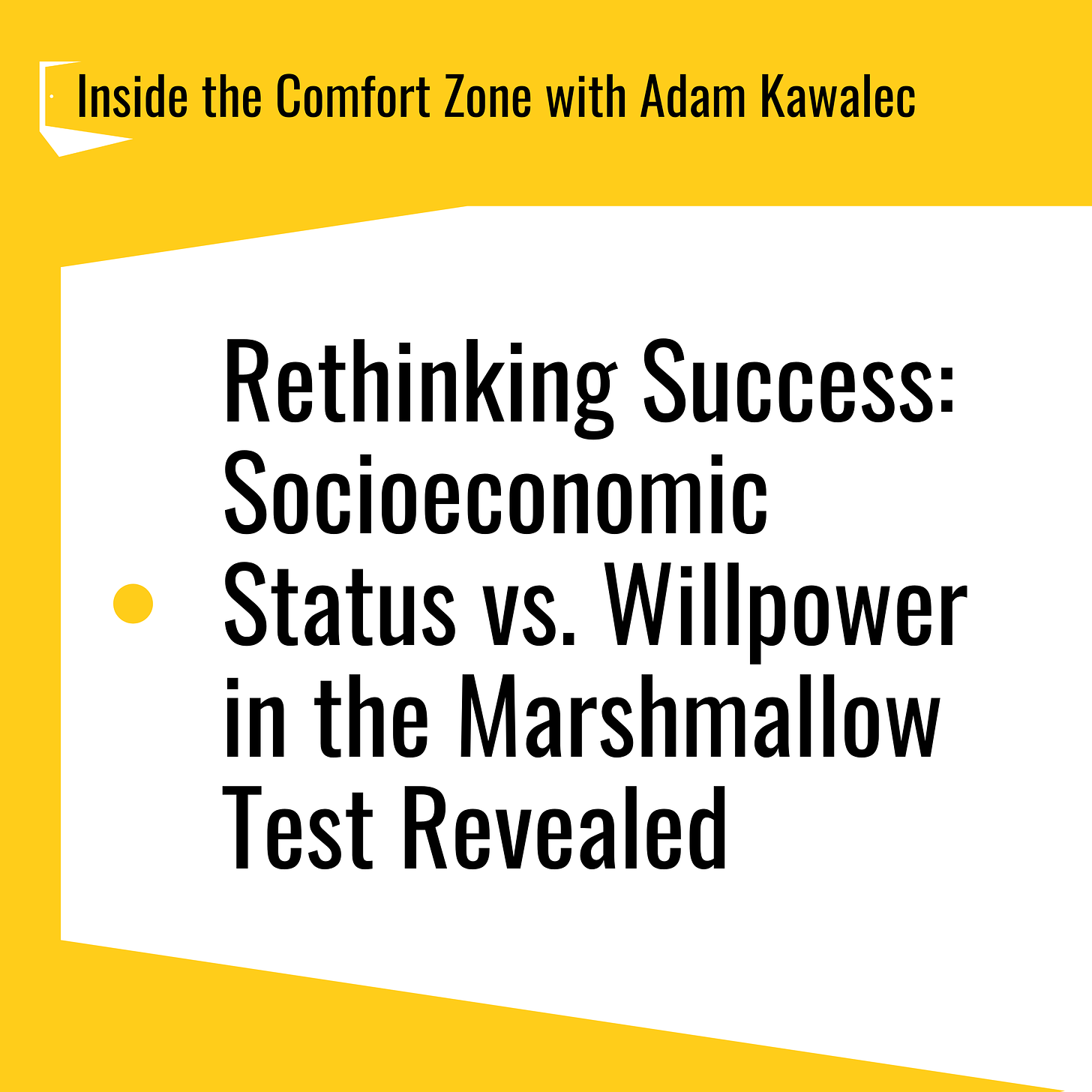

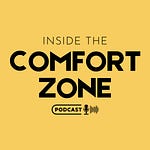
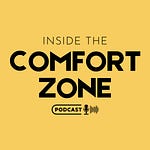
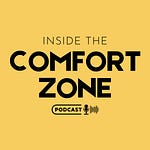
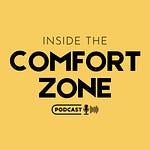

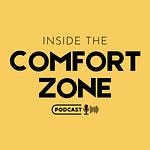
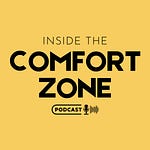
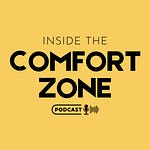
Share this post